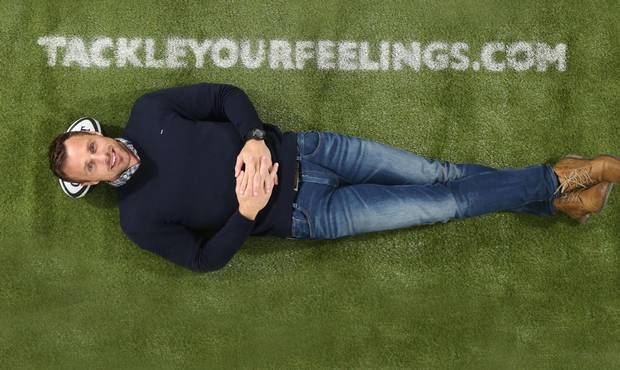News
Tackle Your Feelings: Ulster Public Panel Discussion

As Tommy Bowe battled his way back from the knee injury he sustained whilst playing against Argentina in last year’s Rugby World Cup, there were times during his rehabilitation that made him think that he had played his last game of rugby.
Having picked up four serious injuries in consecutive seasons, Bowe has endured a luckless second stint with his home province and speaking at the Ulster Public Panel Discussion as part of IRUPA’s Tackle Your Feelings campaign, in partnership with Zurich, the Irish winger admitted that having spent so much time on the sidelines, it’s hard not to question whether he would ever get back on the pitch.
“I’ve chatted with Stephen Ferris and Felix Jones about when you’re told that it’s not going to get any better and that’s always the fear. That’s what keeps you up at night.”
Having undergone kidney surgery just prior to his return to Ulster in 2012, Bowe was then dealt a further blow when he picked up a significant knee injury in December of the same year. While Bowe returned to fitness in time to travel with the Lions to Australia the following summer, a broken hand threatened to rule him out of the series. A groin injury sustained in the narrow defeat to New Zealand then forced him to miss the entirety of the 2014 Six Nations.
“This is my 13th season in professional rugby and I’ve found that mental health has become a huge area of concern in sport. Throughout my career I’ve found it difficult to deal with injury, but it’s equally tough when you are dropped or have a bad game.
“The mental side of sport is so huge nowadays, especially as you’re trying to get the best out of people. A lot of it is about being able to perform under pressure in some big, big games but with that come the highs and the lows. It’s important to work at trying to keep yourself on a level playing field, so that you’d don’t go too high when things are going great and you don’t go too low at the other end.”
Also speaking on the evening were IRUPA CEO Omar Hassenein, Dr. Eddie Murphy, Irish Women’s Sevens International Hannah Tyrrell and former Ulster fullback Bryn Cunningham, who was forced to retire early from the game.
Given the macho perception of the sport, people find it difficult to imagine the players dealing with little more than the bumps and bruises. The panel, therefore, explored the importance of mental wellbeing and how Ireland needs to be more proactive in resolving emotional challenges before they escalate into a crisis. The discussions were another step towards achieving the vision of a society that embraces emotional vulnerability.
“When I was a teenager, I struggled with my own self-confidence,” Hannah Tyrrell admits. “I had low self-esteem and a poor body image. I just viewed myself negatively in every aspect. I developed an eating disorder. For some reason I felt that if I were skinnier or prettier, people might like me, or I might perform better in school or in sport.”
A talented soccer player, Tyrrell turned her attentions to Gaelic Football when the Dublin U14 management came calling. Thereafter she progressed through the ranks to the senior side, winning several All-Ireland titles along the way. But beneath her sporting glory, Tyrrell was facing up to a greater challenge.
“I wasn’t very good at communicating my feelings,” Tyrrell explains. “I took everything on myself and in time I began to restrict my food intake, binging and purging before I began to self-harm.”
Having sought help, rugby provided Tyrrell with an outlet to grow, develop and indeed take stock of her experiences.
“I took up rugby in 2013 just after the women had won the Grand Slam. Rugby was ‘all the rage’ for many girls at the time. As I was very sporty and ambitious, it was always something that I thought I’d love to try. I was just coming out of my recovery and so I needed it to keep me on the right track and provide another goal to focus on. Rugby aside, the camaraderie I’ve enjoyed and the friends I’ve met means it’s one of the best decisions I’ve ever made.
“I’m very thankful I went to rugby training that evening.”
Back to NewsLatest Posts

Inaugural Past Players Padel Tournament

The Ireland Sports Fund

Making Tracks
















